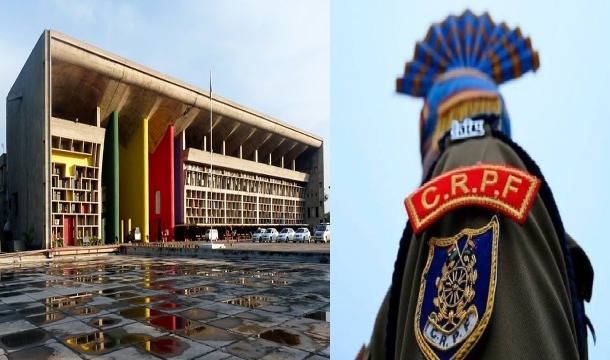
The Punjab and Haryana High Court upheld a dismissal decision against a CRPF constable for making obscene gestures toward a senior female officer and strolling around the mess while under the influence of alcohol while on duty.
According to a single bench of Justice Harsimran Singh Sethi,
“The member of the disciplinary force cannot act in a manner in which the appellant had acted even if there was no other blot in the service career of the appellant but misbehaving with a senior lady official and that too, under the influence of liquor is to be dealt with in a stringent manner so as to set an example for others. In the facts and circumstances, it cannot be said that the punishment imposed upon the appellant is disproportionate to the charges alleged and proved.”
What is the case?
Hira Lal, the appellant, was recruited as a constable in the CRPF in January 1982. A charge sheet was issued against him under the CRPF Act in 1999. The first charge leveled against him was that as a constable, he misbehaved with a sub inspector in a mess recreation room around lunchtime, waving his hand in an improper gesture. The third claim was that he was under the influence of alcohol at the relevant time while present in the mess area, which is also not permitted for members of the disciplinary force, especially during duty hours.
In 2000, Hira Lal was removed from service after an investigation determined that both of the claims against him were true.
He filed a civil claim in the lower court against his dismissal, and it was determined that after the procedure under Section 11 of the CRPF Act for imposing the minor punishment was commenced, the major punishment could not have been imposed on the appellant, and the suit was dismissed. Dissatisfied with the verdict, Union of India filed an appeal before the lower Appellate Court, wherein the judgment and decree of the trial Court was set aside and the suit filed by the appellant-plaintiff was dismissed. As a result, he filed the current Regular Second Appeal with the High Court.
The appellant had 17 years of service to his credit, and the offenses asserted against him were such that the punishment of dismissal imposed upon him was not proportionate to the charges alleged and proven.
Justice Sethi cited the Supreme Court’s decision in Anil Kumar Upadhyay vs. The Director General, SSB and Others Civil Appeal No.2707 of 2022, in which it was stated that a member of a disciplined force is expected to follow the rules, have control over his mind and passion, guard his instincts and feelings, and not allow his feelings to fly wild. In the aforementioned instance, the appellant entered Mahila Barrack at midnight, and due to his misconduct, the disciplinary authority imposed the punishment of expulsion from service on him, which punishment was upheld by the Court.
“The appellant’s case herein likewise fits within the confines of the law established in Anil Kumar Upadhyay’s case (above) and deserves no sympathy from the Court,” the bench stated.
The court found no basis for interfering with the lower Appellate Court’s verdict and decree “since no perversity could be pointed forth either on facts or on law.”




